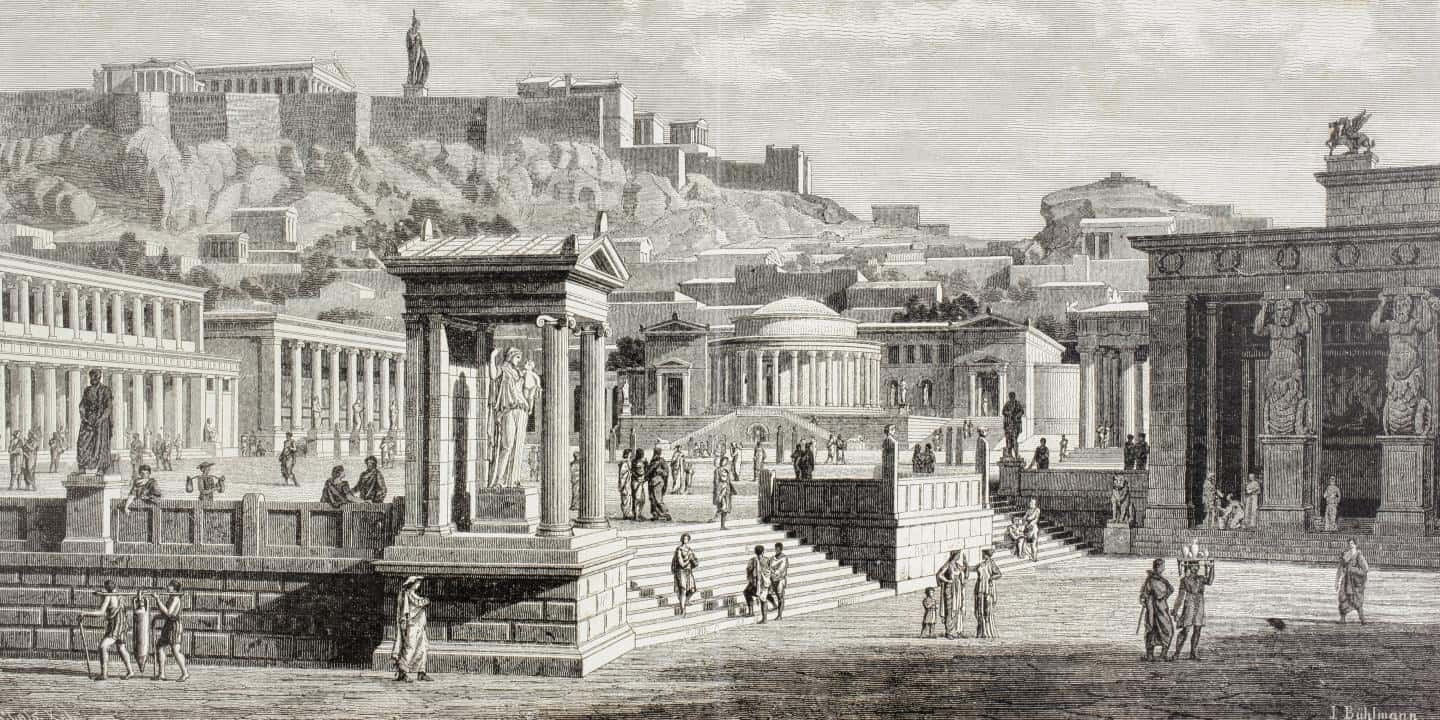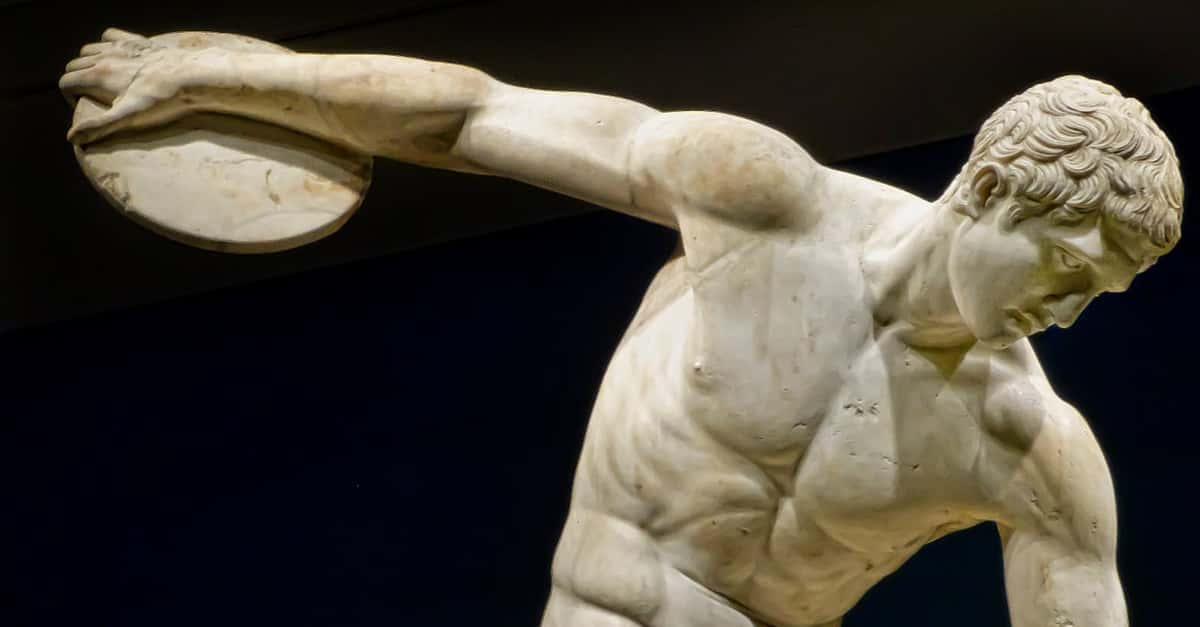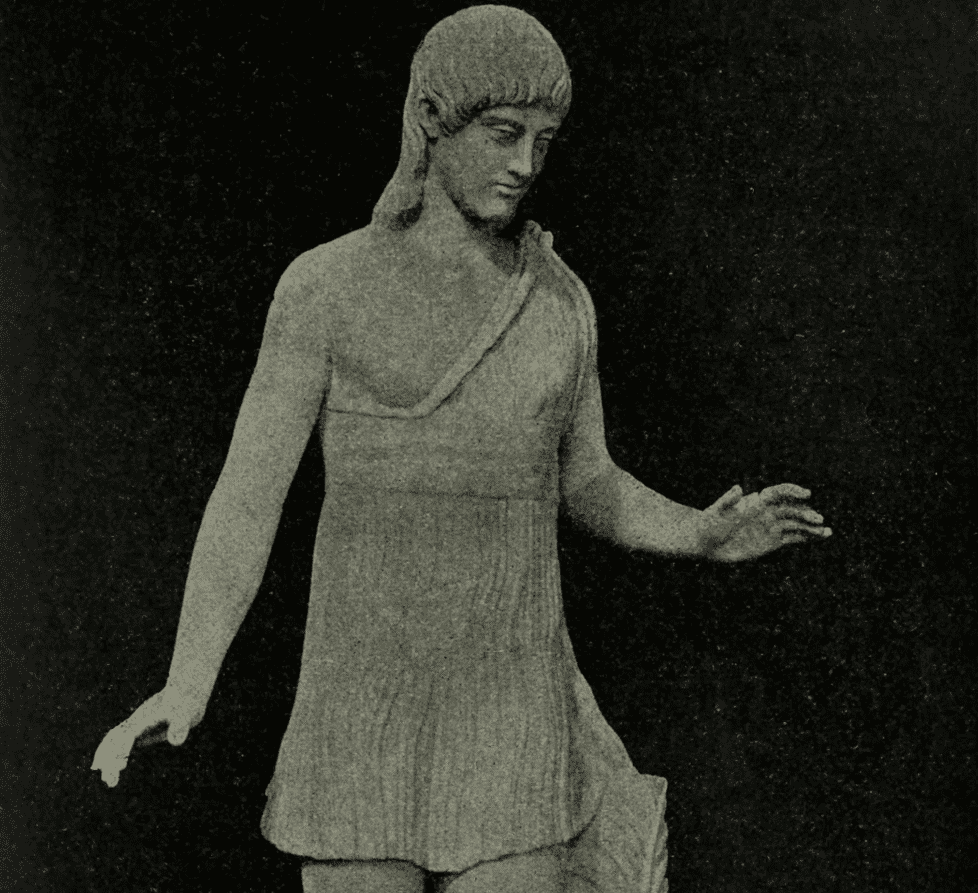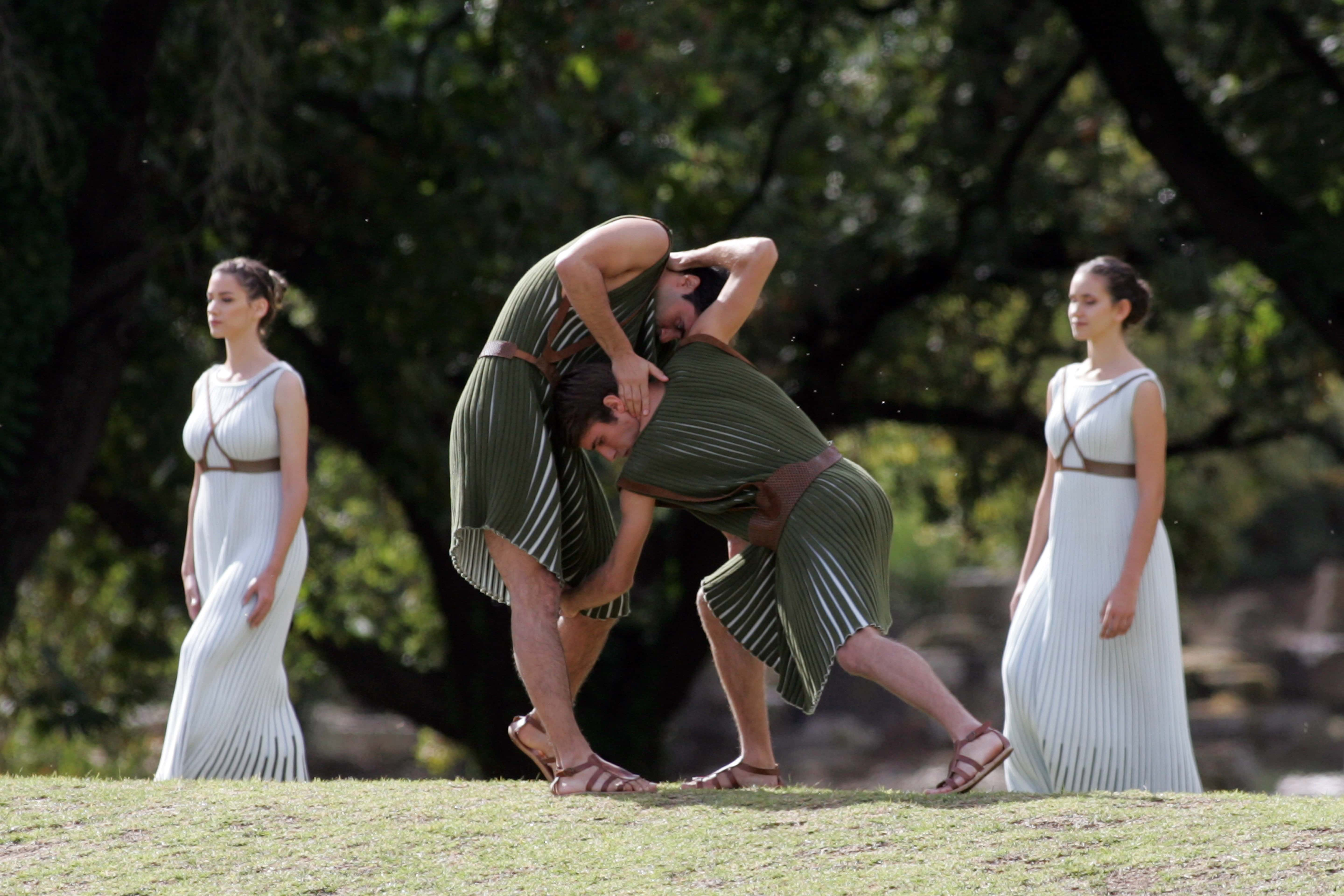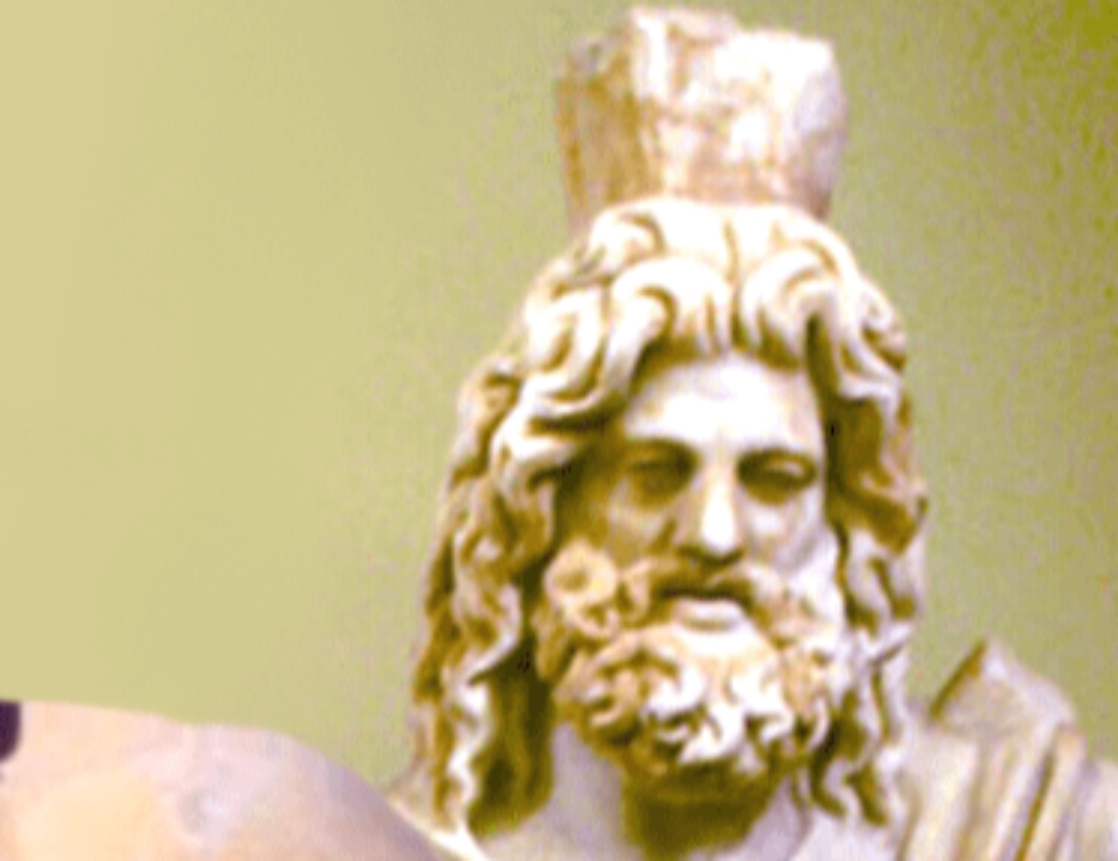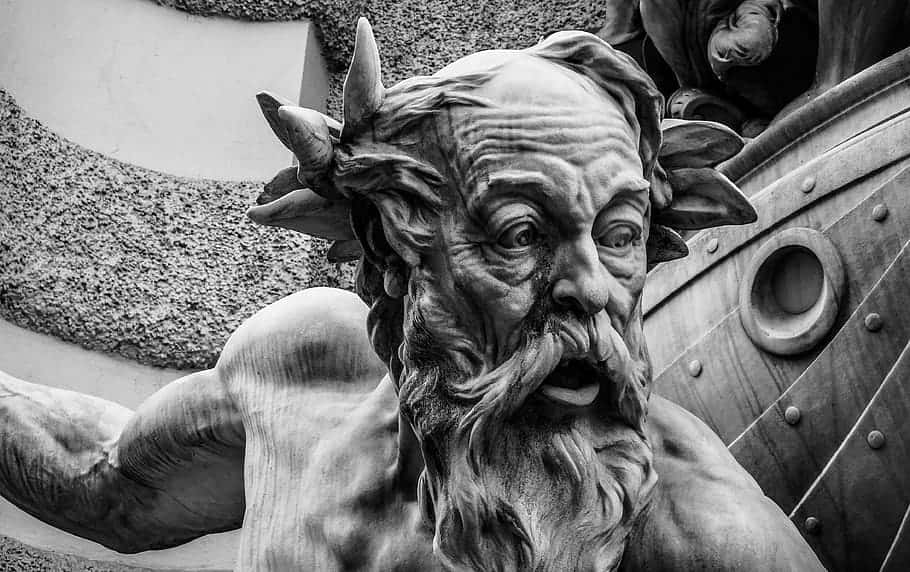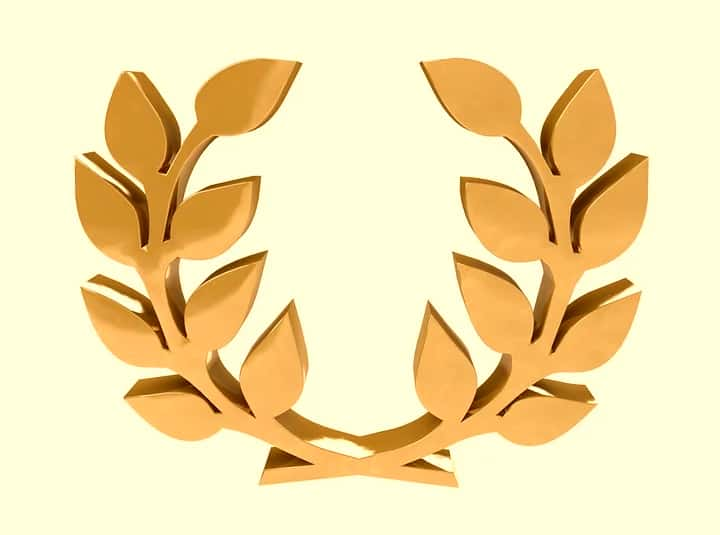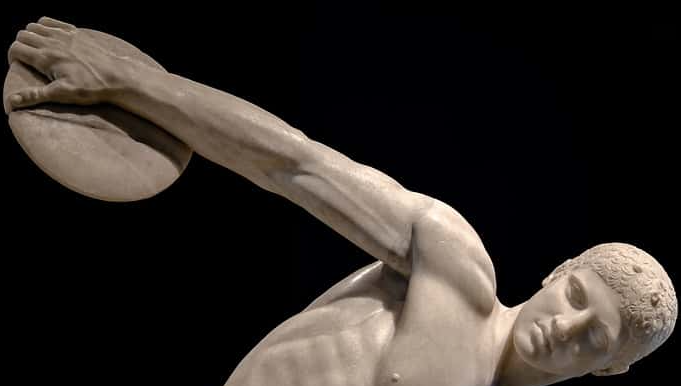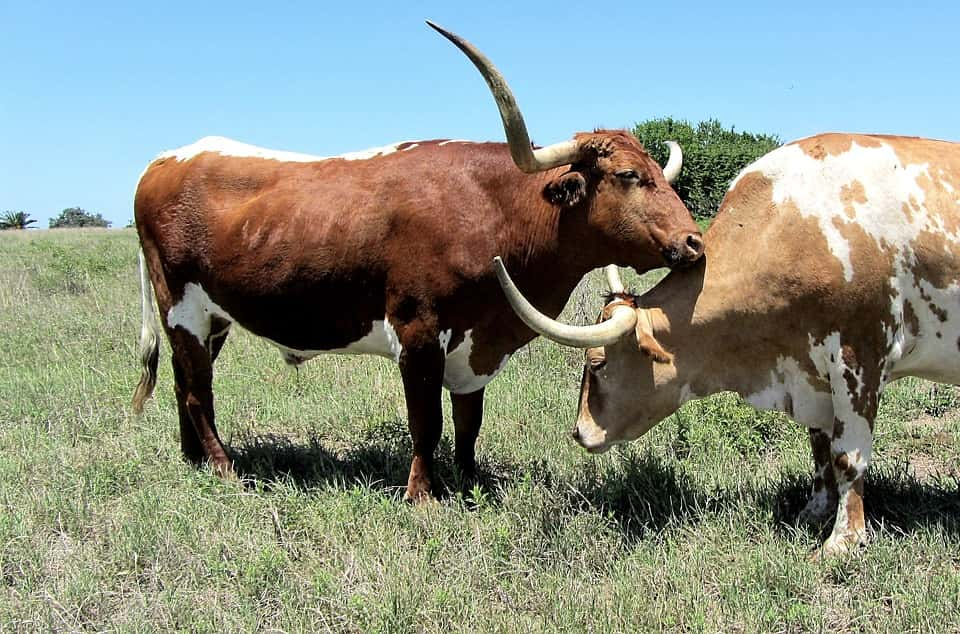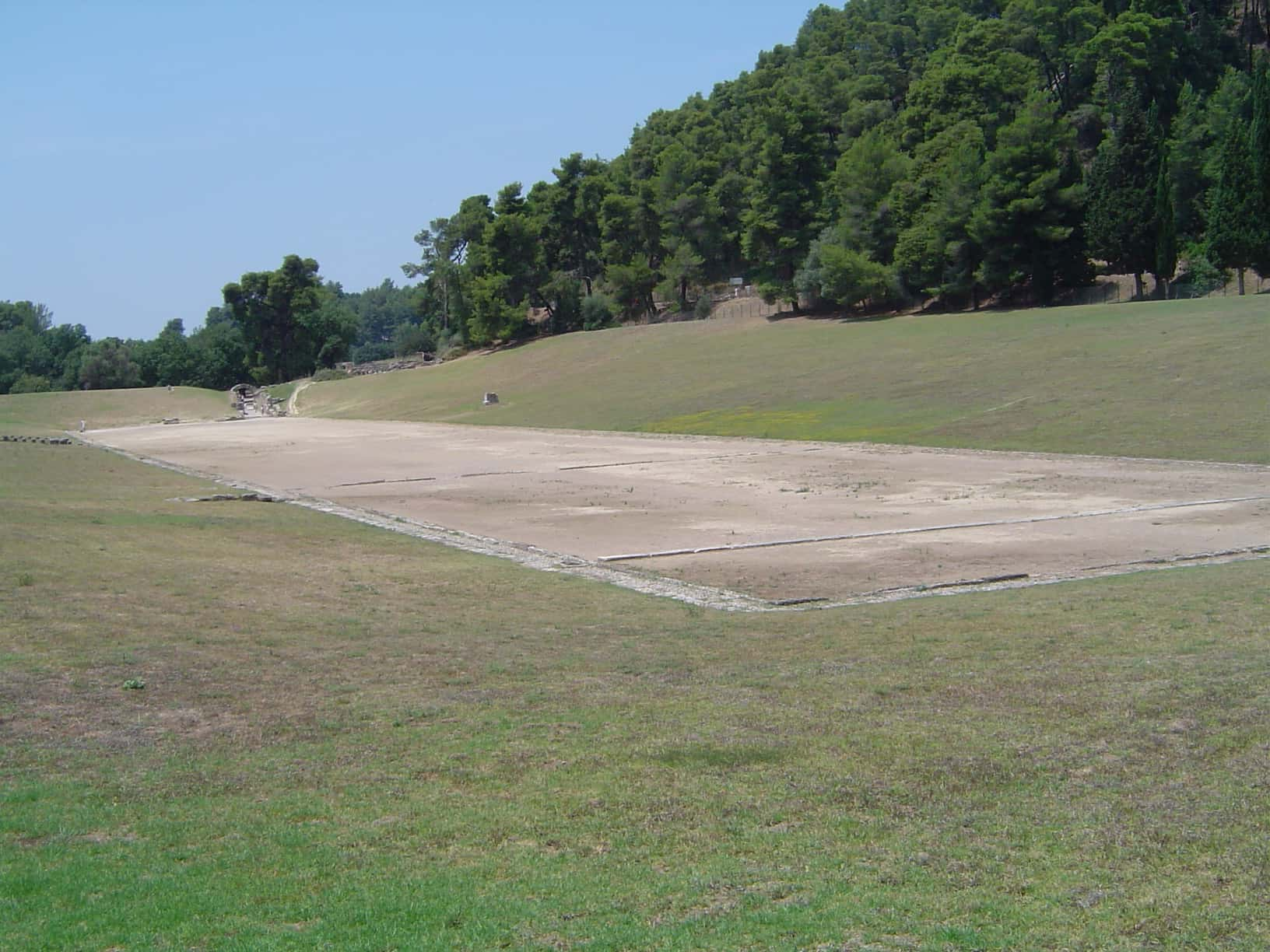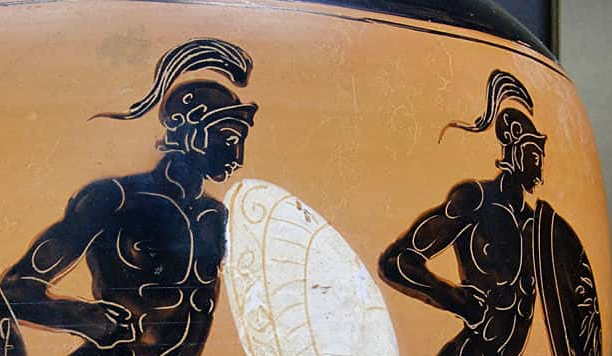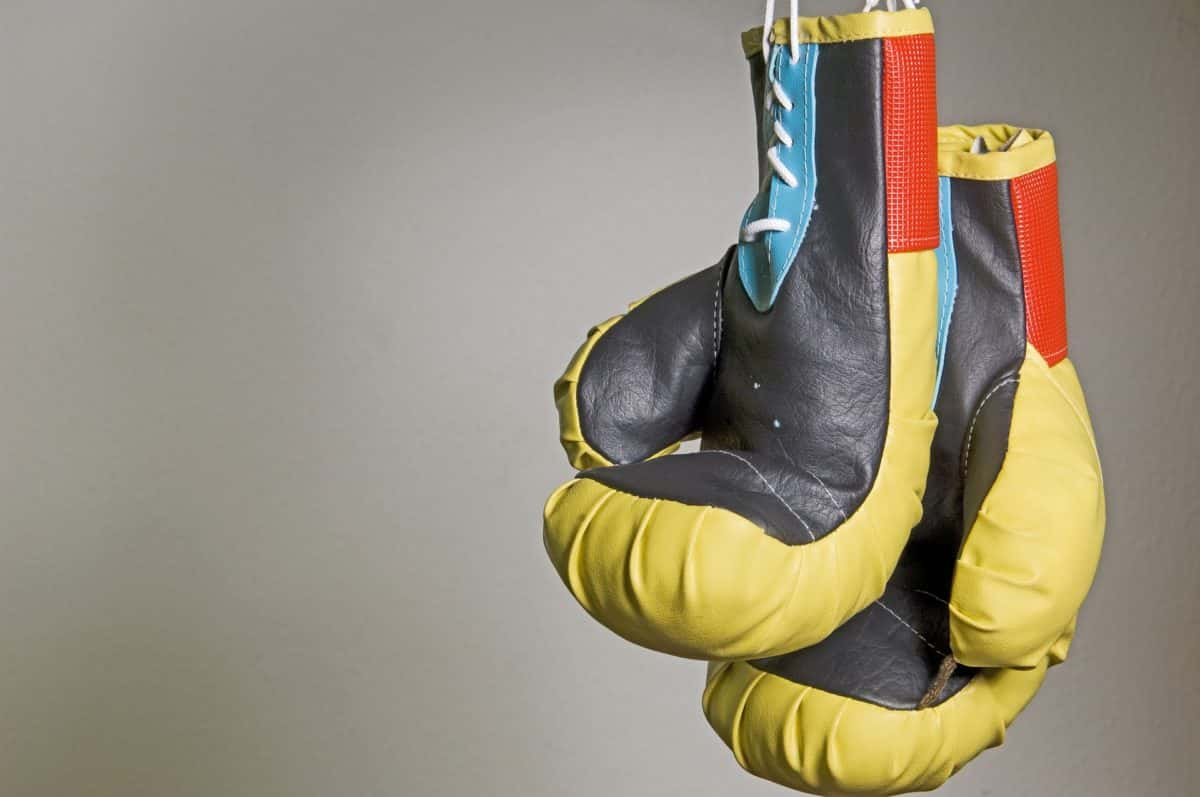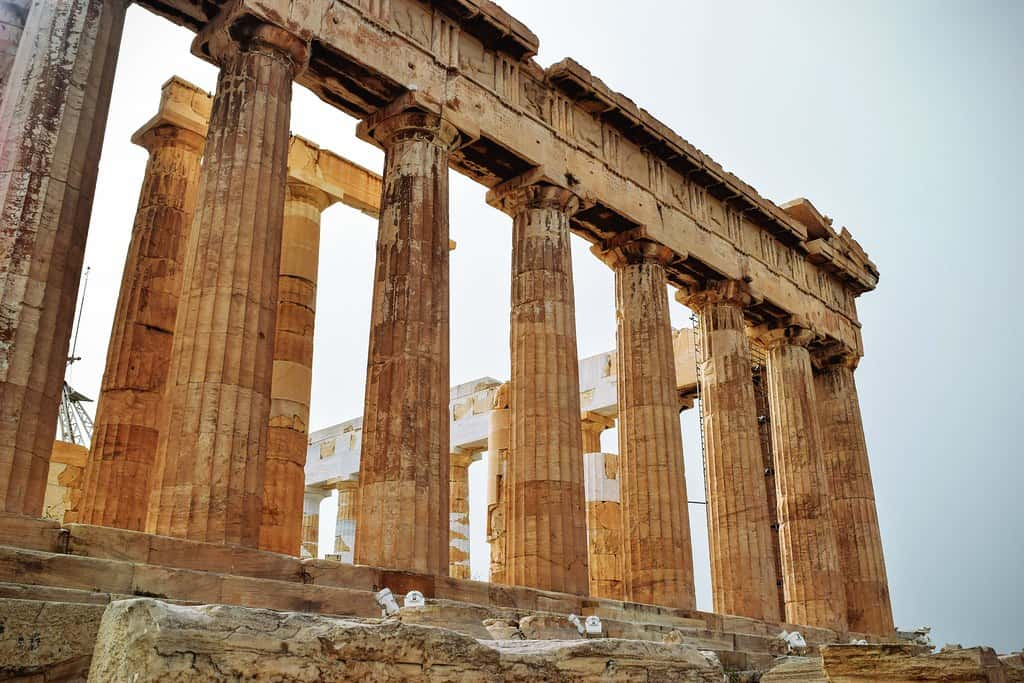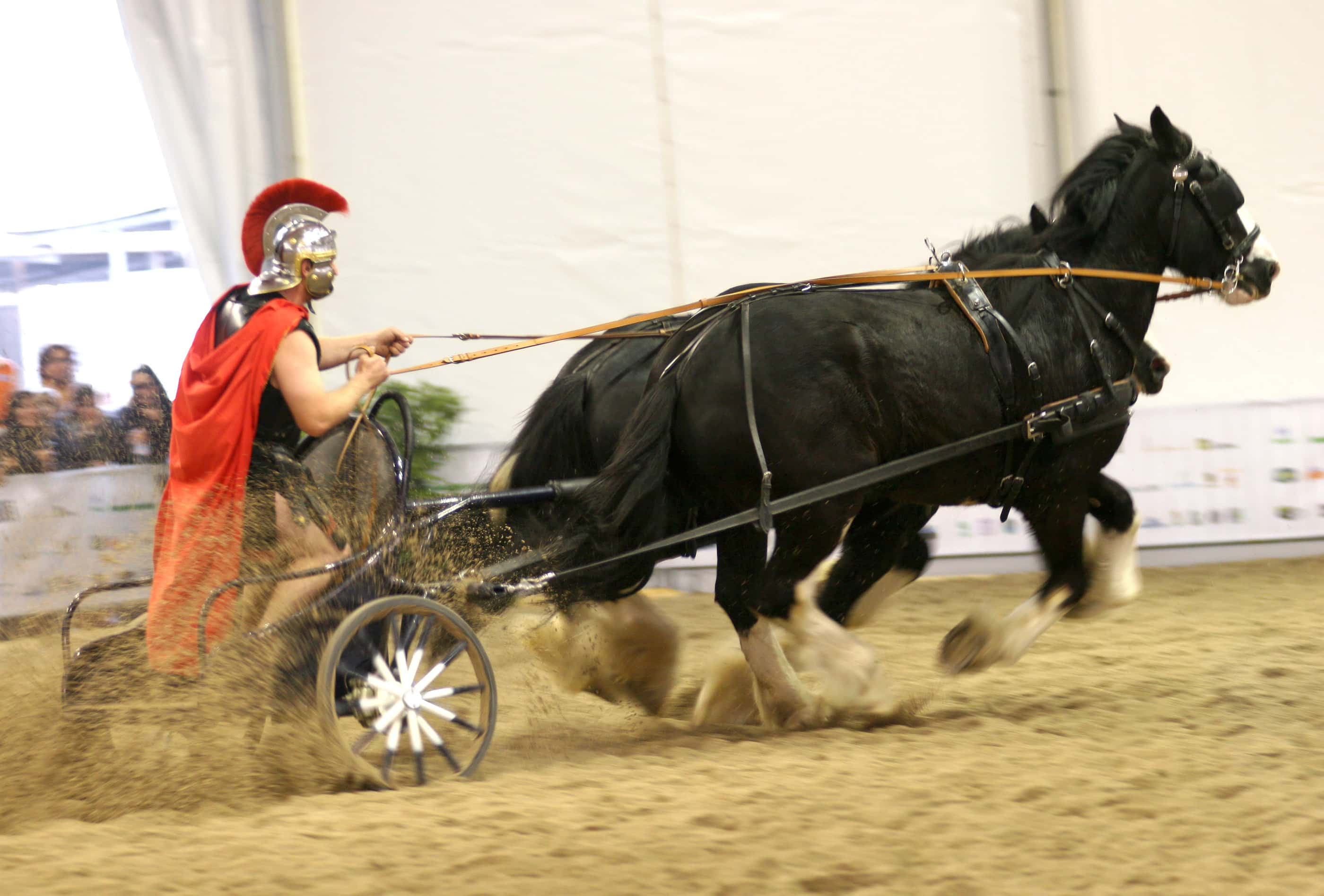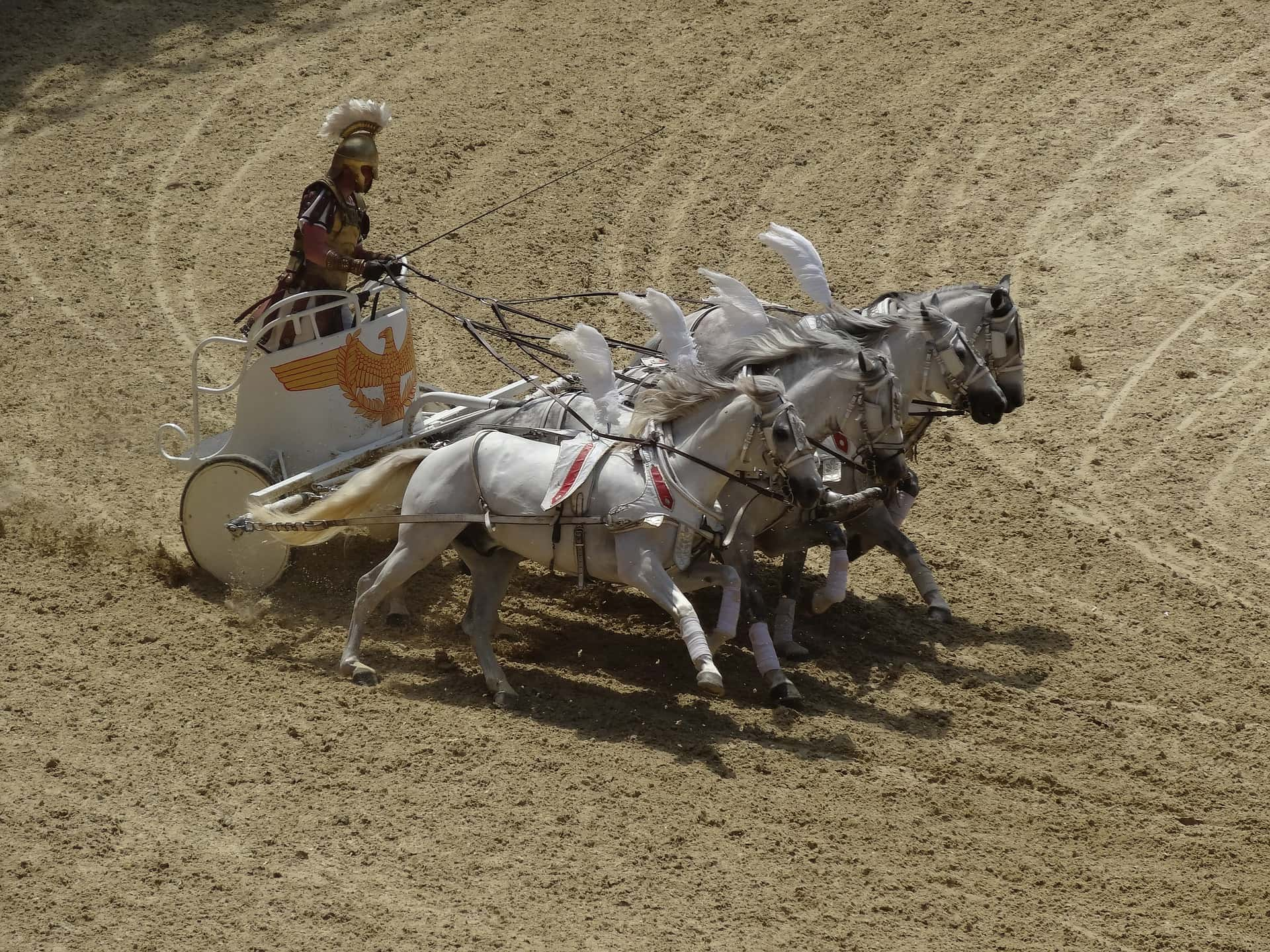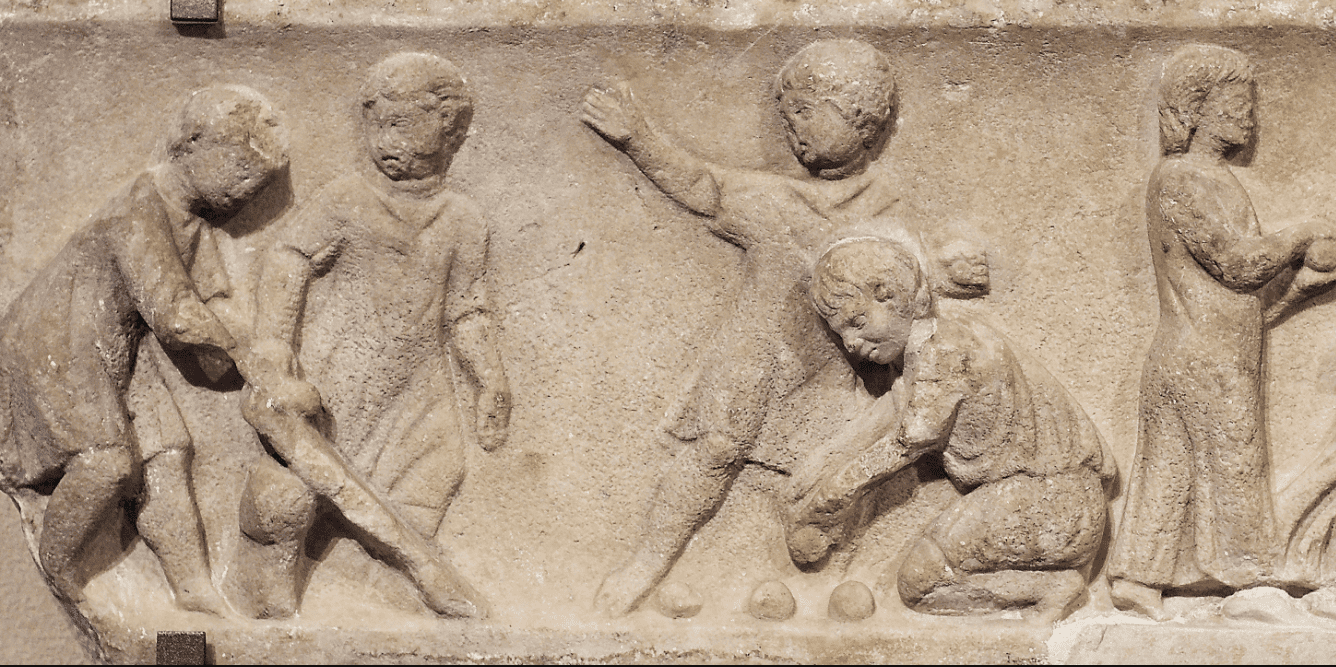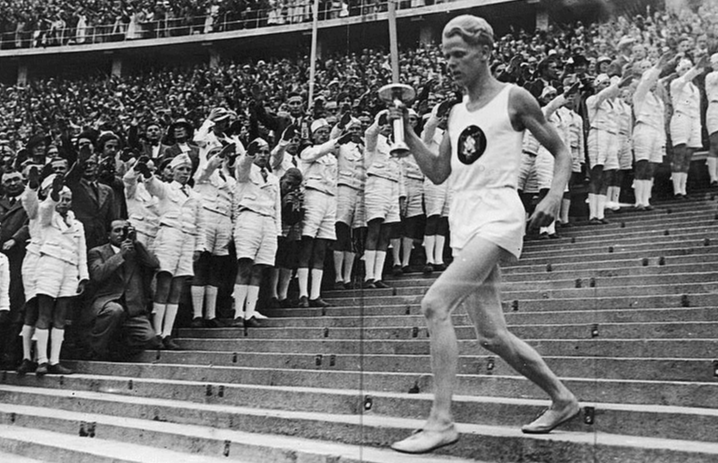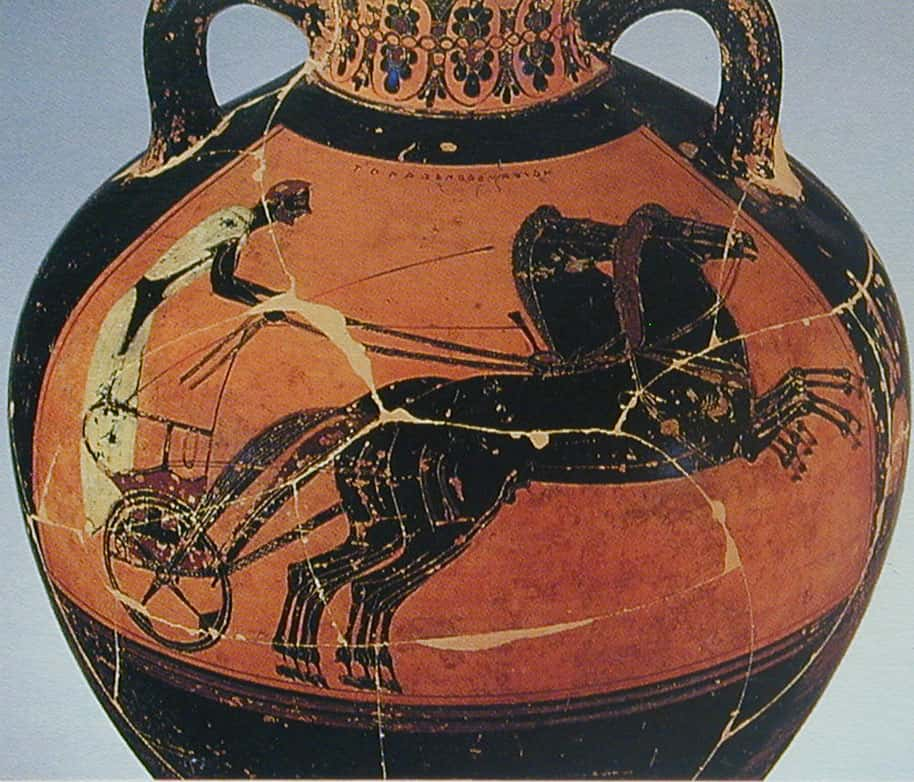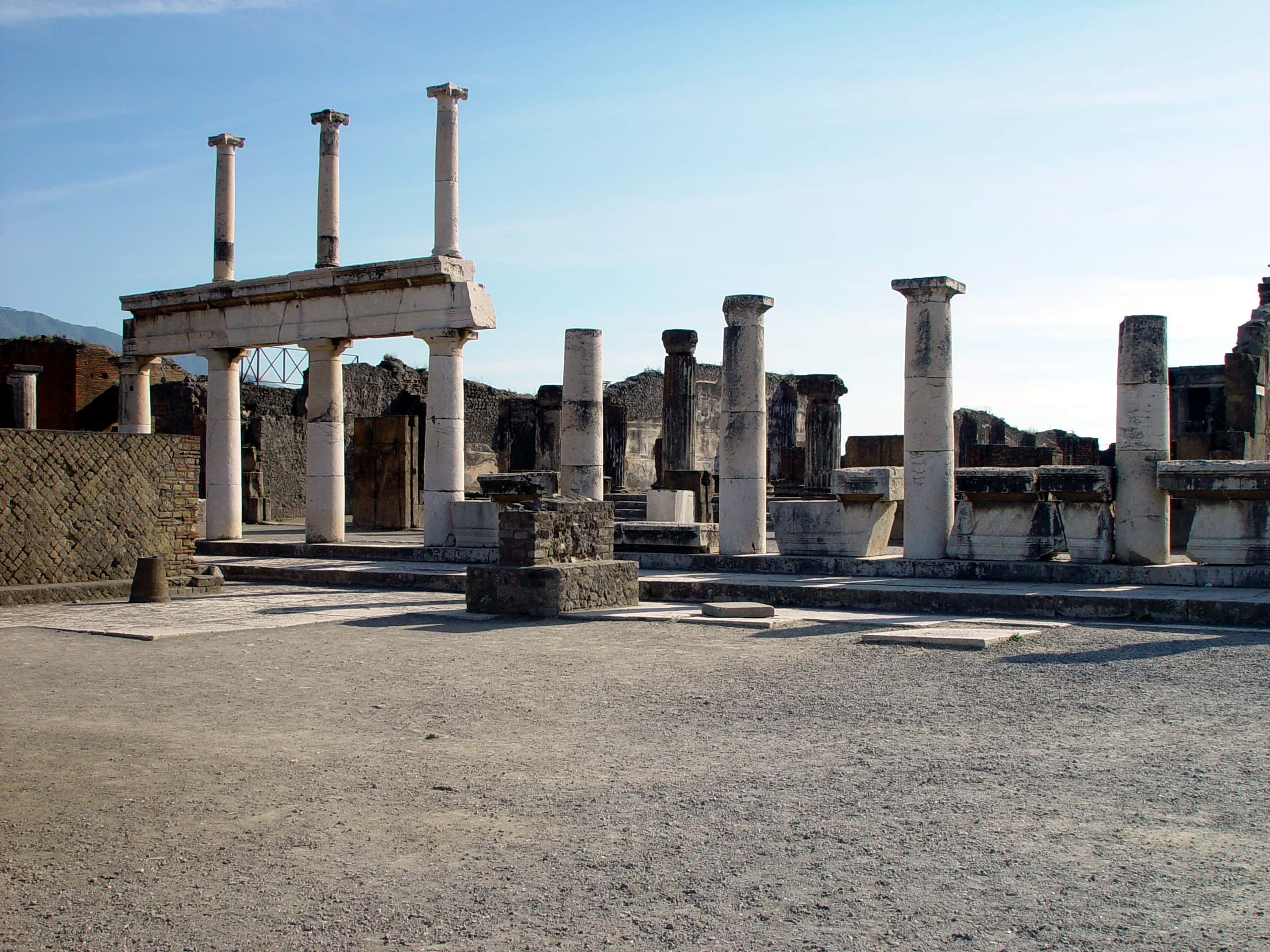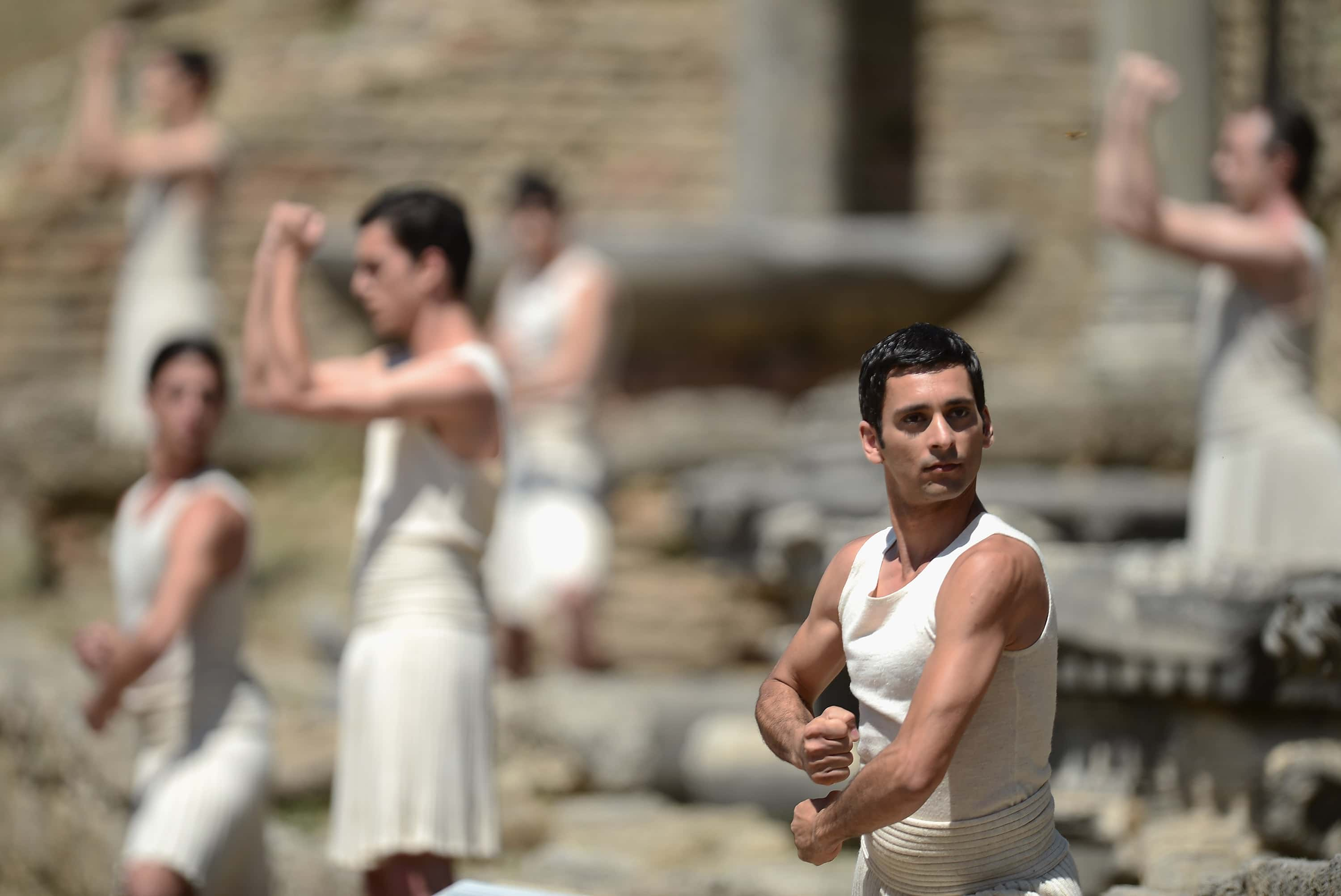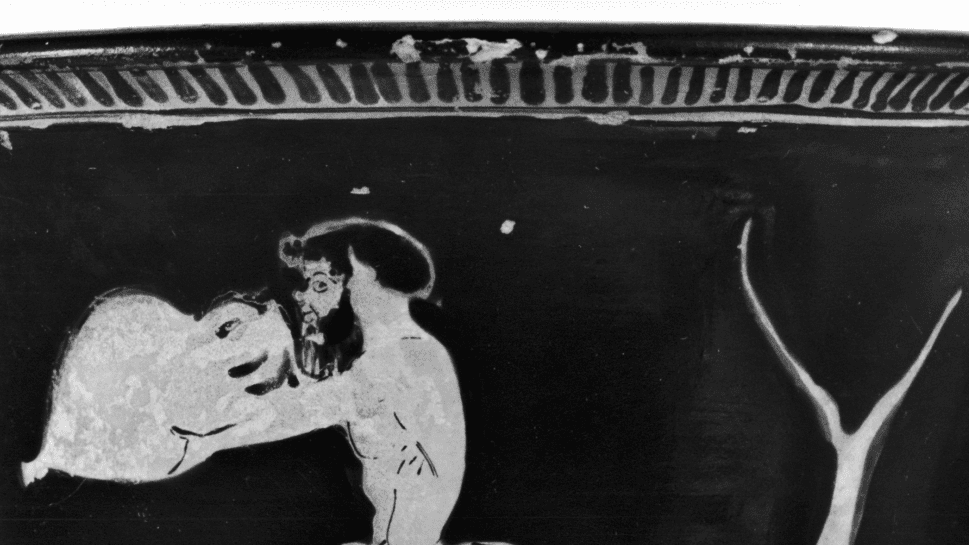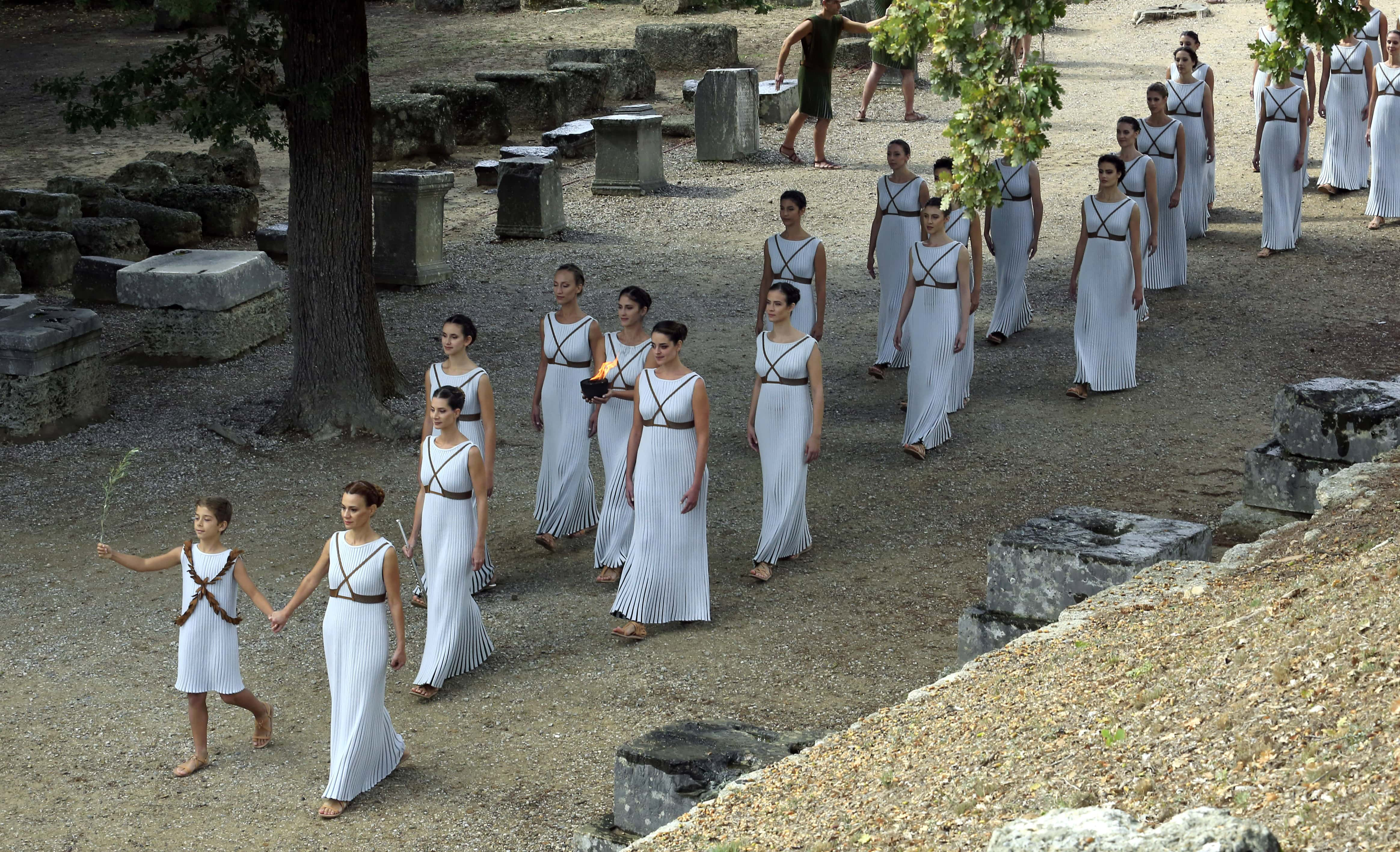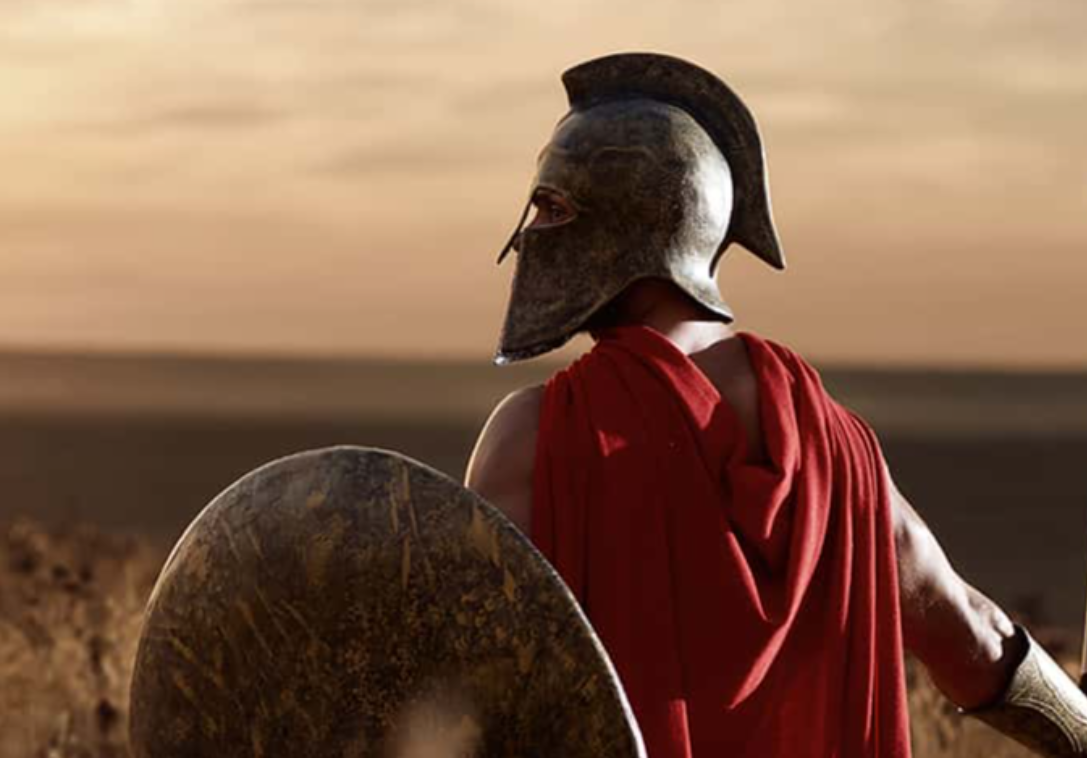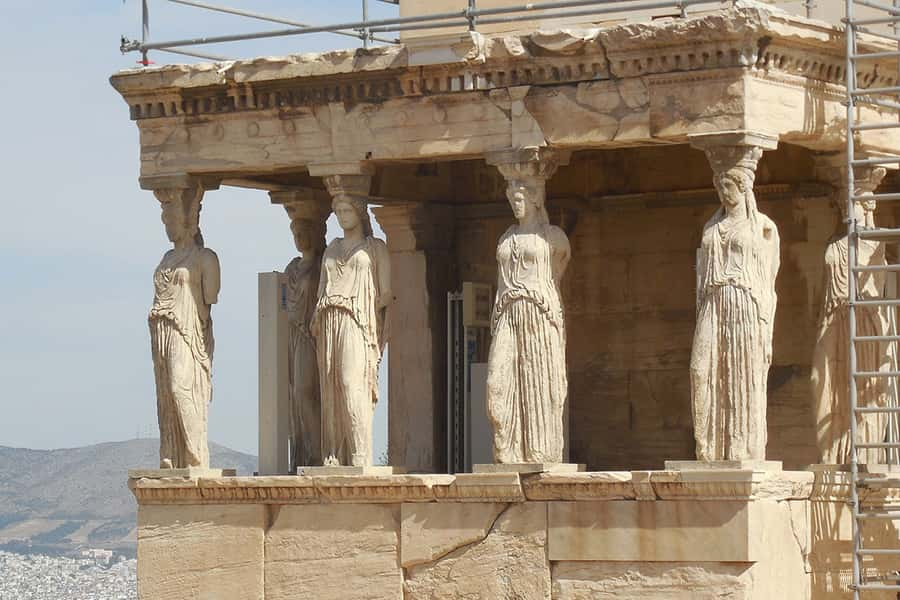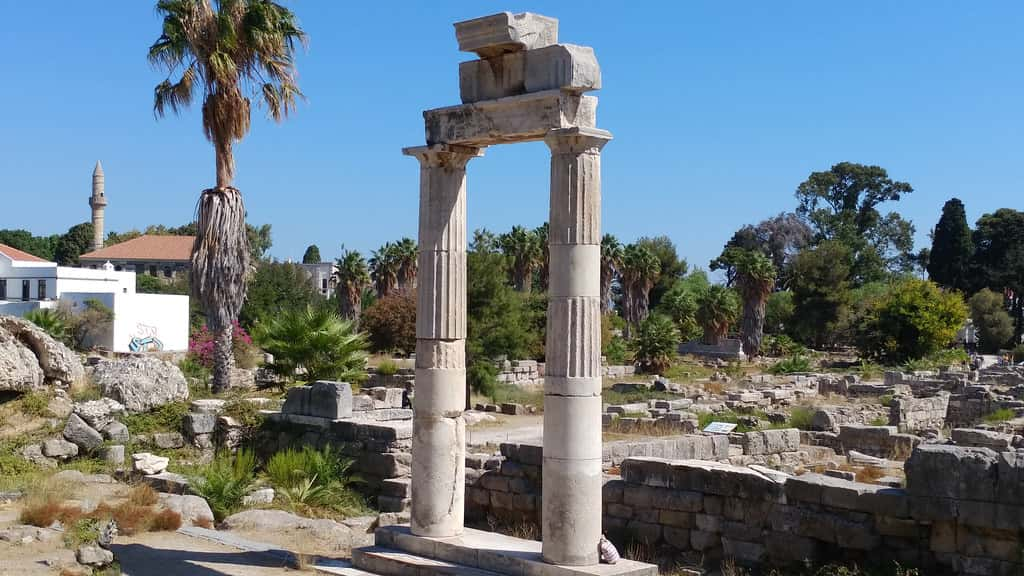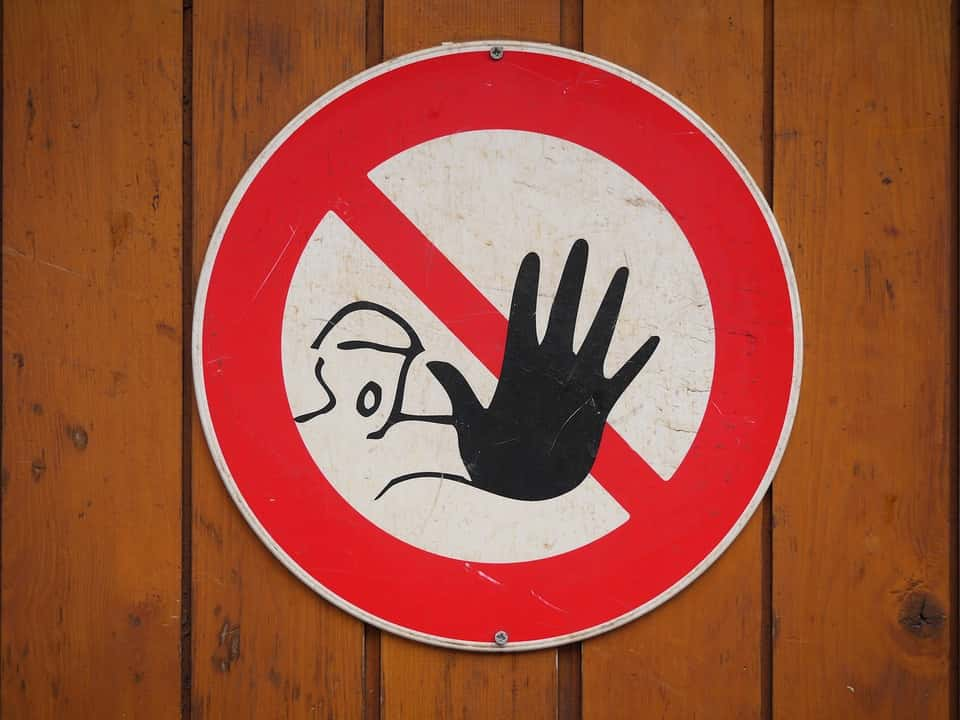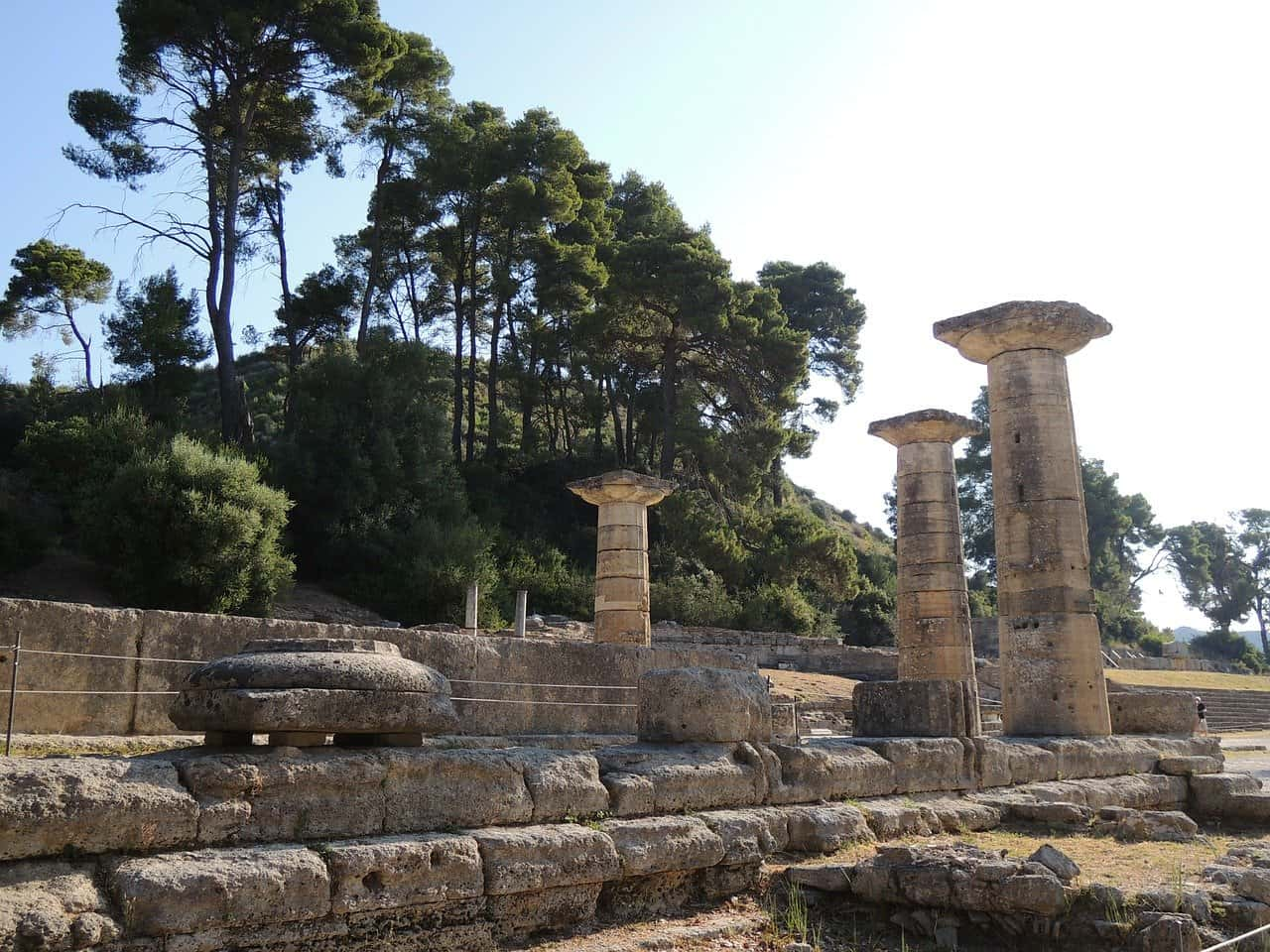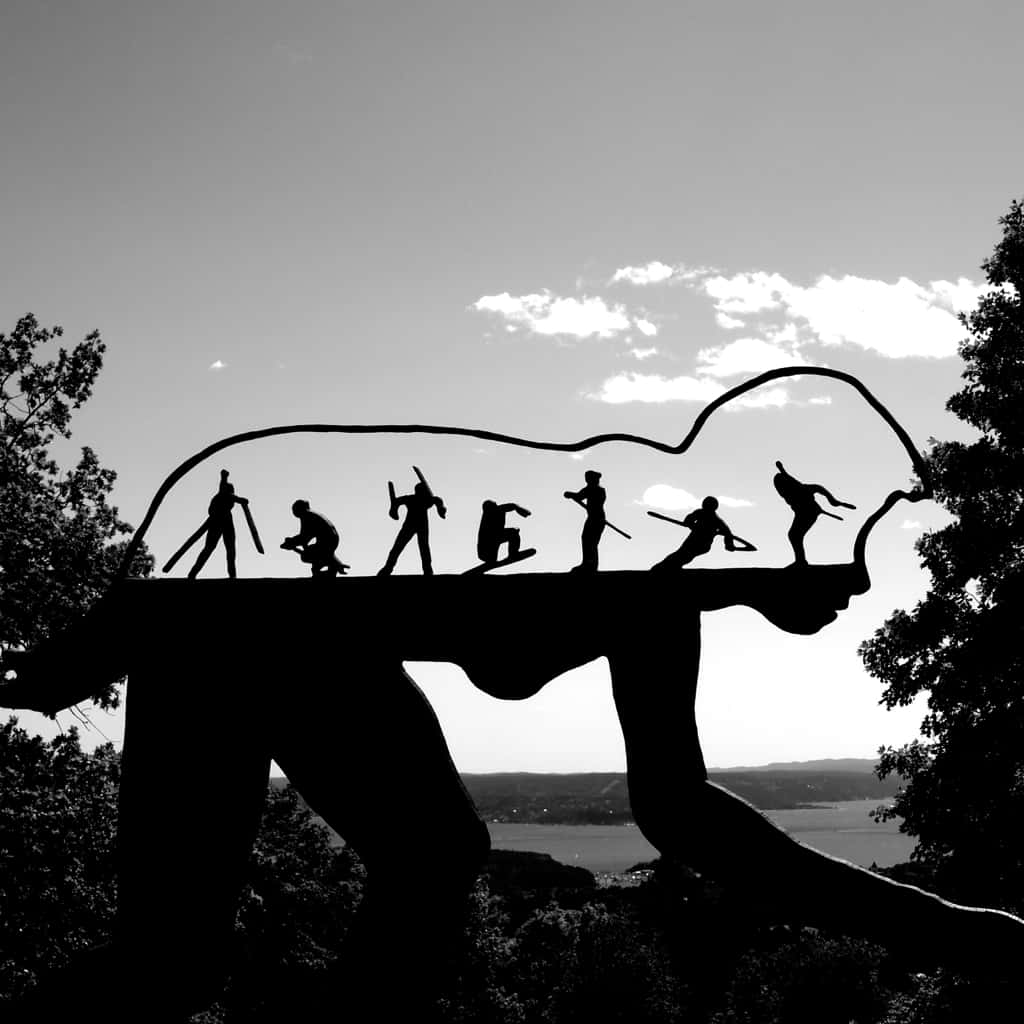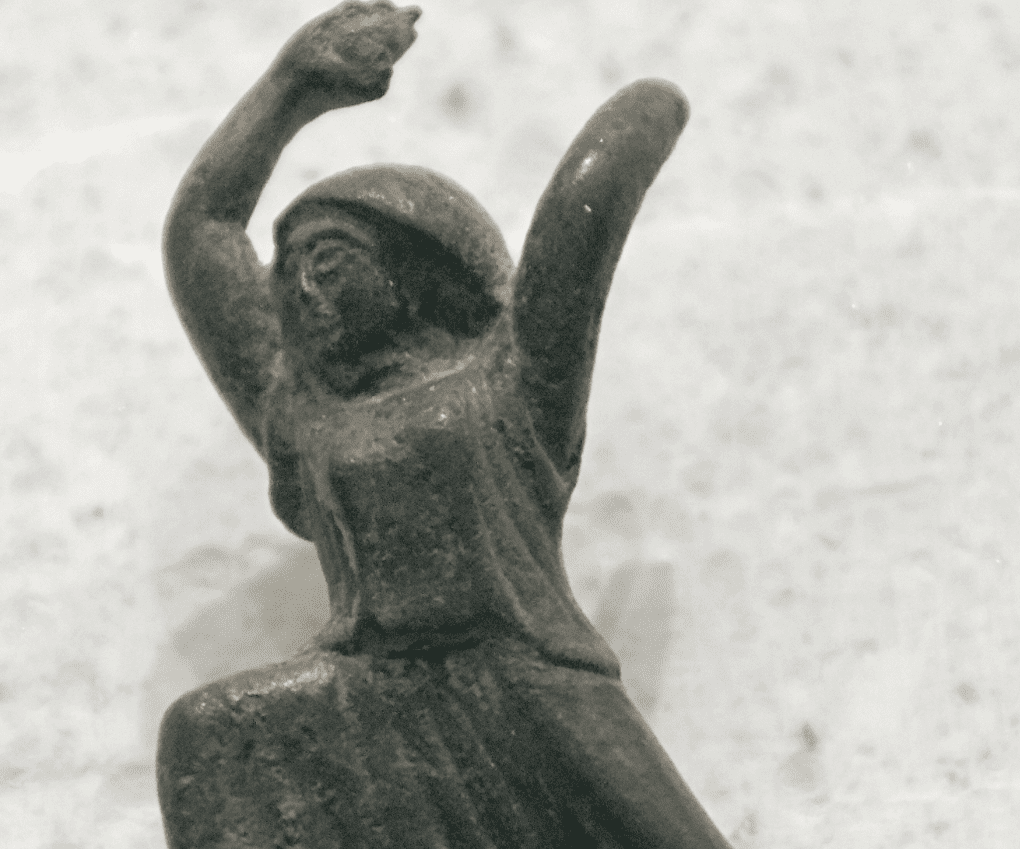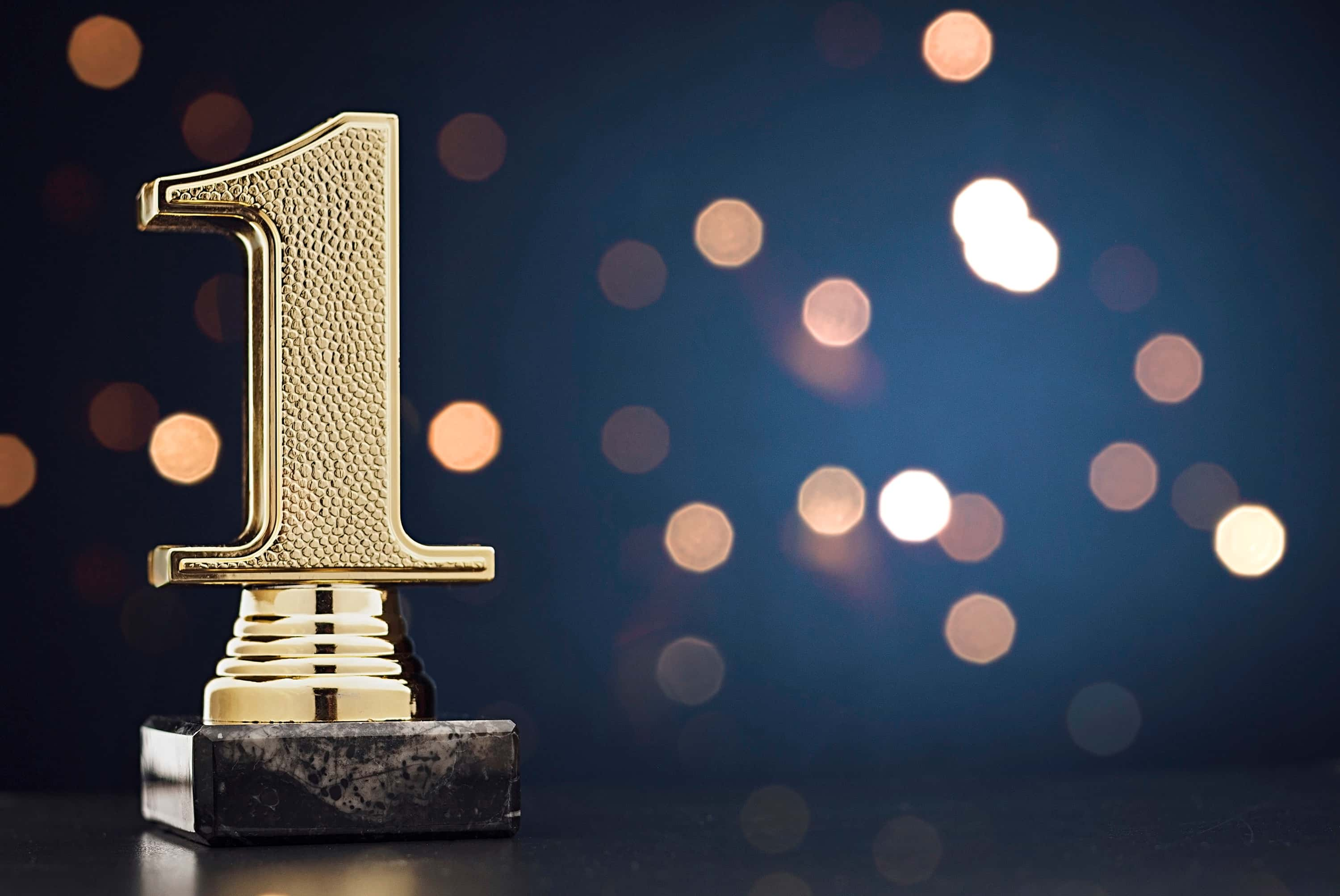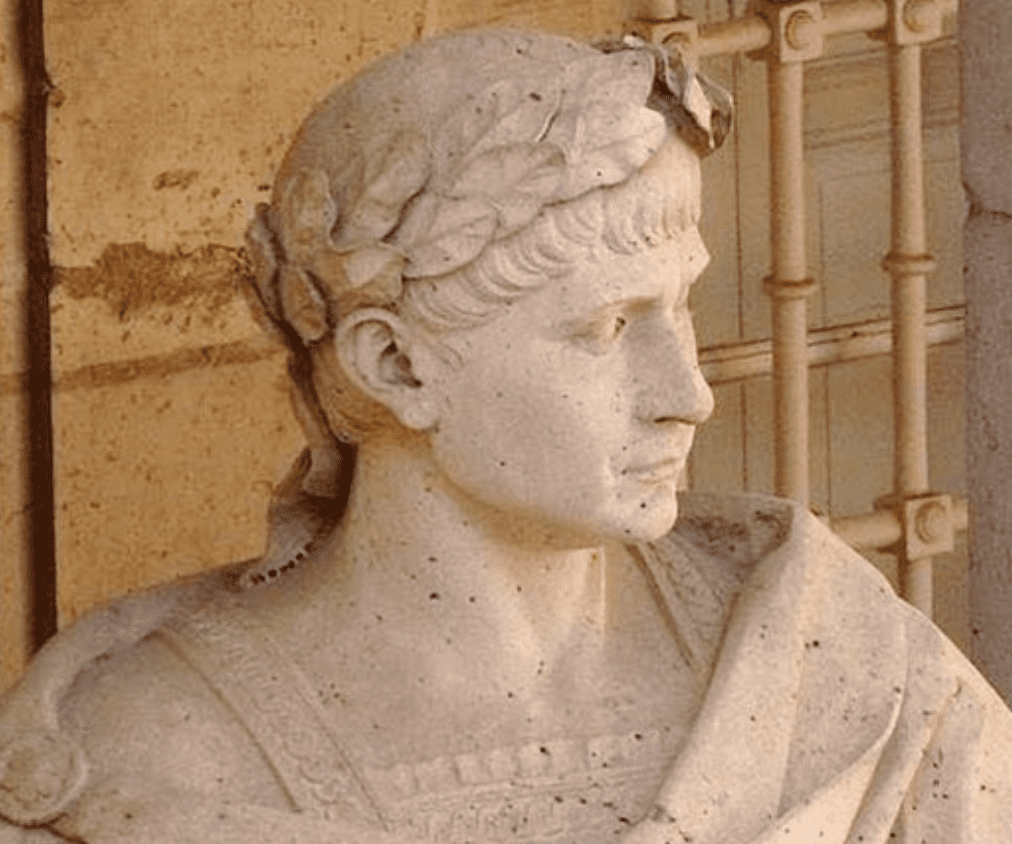The Olympics weren't always the fun, respectful festival of competitions that thrive on sportsmanship that they are today—though even the modern Olympics don't always live up to that standard (Looking at you Ryan Lochte).
1. The OG
Known for its athletic competitions, the ancient Olympic Games were originally a festival in honor of Zeus. The actual origins of the games are unknown due to a heavily tangled history of mythical stories relating to the gods. Accordingly, the games received their name from the Olympian gods, who were said to live on Mount Olympus.
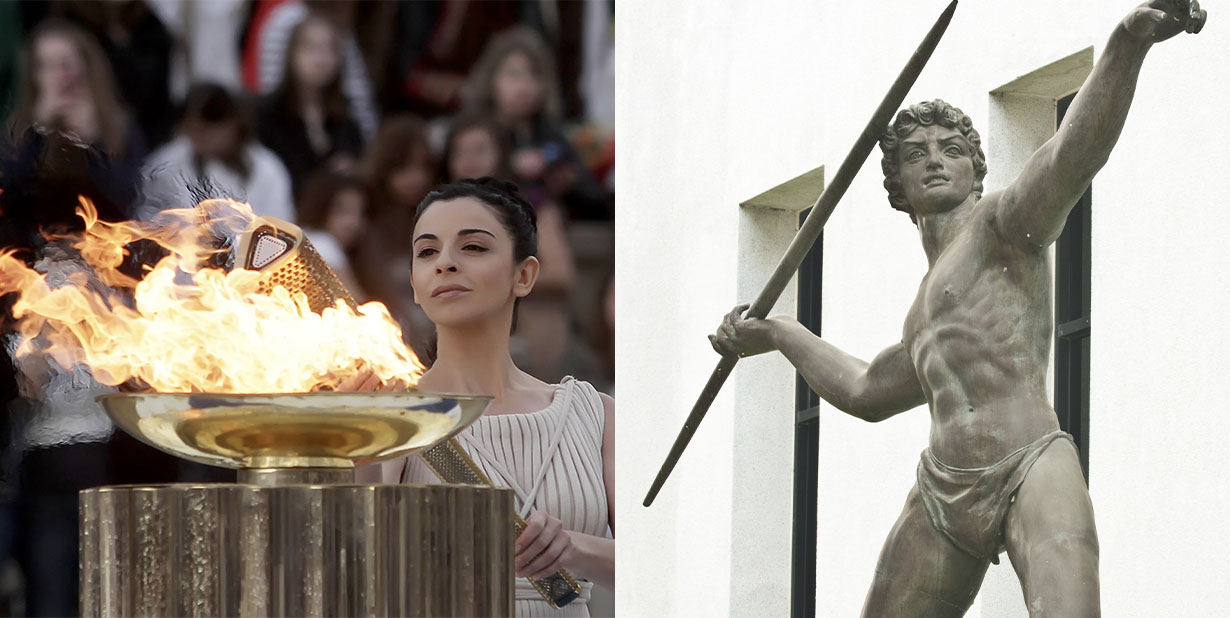
2. Ancient Rituals
The Olympic games were only one of two central rituals that Greece celebrated at the time. The other was an older, more grounded, religious festival called the Eleusinian Mysteries.
3. Women Were First
The origins of the first games are believed to have been a foot race that occurred annually between young women who competed to become the priestess for the goddess Hera.
4. Old Boys Club
The first recorded competition for women in the Olympic Stadium was the Heraean Games in the 6th century BC, which consisted of foot races for both men and women. By the 5th and 4th centuries BC, the games were restricted to male participants only.
5. Godly Tribute
Around this time, the Sanctuary of Zeus in Olympia contained an 13-meter-high ivory and gold statue of Zeus that was one of the Seven Wonders of the World.
6. Artistic Expression
Unlike today, art was also a major part of the ancient games, and the most famous artists from all around Greece would show their faces at the games and compete in art competitions. These artists strove to capture the harmonious natural movement of the human body in their works.
7. Victory Song
Poets were also commissioned to write songs dedicated to the victories of the Olympics. These poems were passed on from generation to generation.
8. Not Just a Baker
The first recorded winner of the Olympic Games was Coroebus, from the city-state of Elis, who won a foot race. Coroebus wasn’t one of the elite; he was just a baker (who probably made the meanest bread in all of Greece).
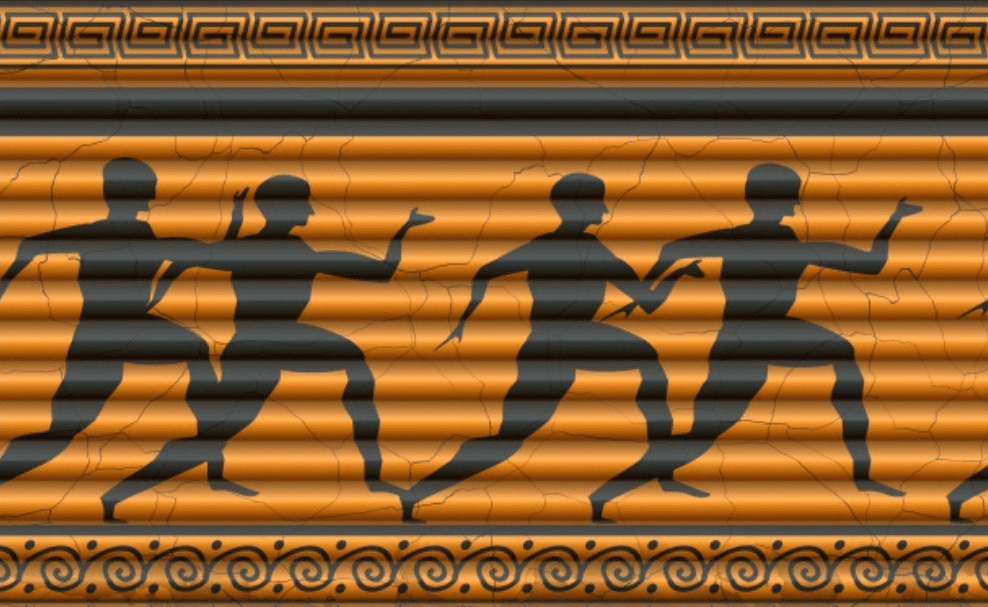 Public Domain Pictures
Public Domain Pictures
9. Good Job, Guy
Champions were showered with honor, received lucrative material rewards, and got an olive wreath (which symbolized a crown) and a red tunic to wear. The people believed that the god of Victory, Nike, chose the winner, thus giving the champions a status on the level of a god for a time.
10. It's a Fake
The most famous statue symbolizing the original Olympic games is the Discobolus, sculpted by Myron in the 5th century BC. The one we have today, however, is actually a Roman replica dating back to about the 2nd century BC.
11. Sacrificial Lamb—I Mean Oxen
During the middle day of the Olympic festival, 100 oxen would be sacrificed to Zeus.
12. How Many Olympiads Until...
The Olympics were so influential that the word "Olympiad" became a measurement of time, referring to the period in between games. The games were held at four-year intervals, so an Olympiad stood for four years' time.
13. A Run Across the Stadium
The modern word "stadium" is derived from the Stade race, the first and only competition of the original games, which was a foot race of about 190 meters. It wouldn’t be until the 14th Olympics that the next event, the Diaulos (“long race”), was introduced.
14.Sport as Conflict
The latest event introduced to the Olympics was the Hoplitodromos ("Hoplite race") in 520 BC, centered on the strategy of catching adversaries off guard by sprinting towards them with full speed whilst clad in complete armor. So yes, the race involved men running at full speed in armor.
15. Who Can Do It All?
The Pentathlon was also introduced at the 18th Olympic festival, and was made up of five events: running, long jump, discus throw, javelin throw, and wrestling. The competition would take place over one day, but it is not known how in the heck a winner was actually decided.
16. No Need For Helmets
Boxing would be added at the 23rd games in 688 BC. There was no points system in this event—instead, the match ended when one man was completely knocked out.
17. The Baddest of Them All
At the 33rd Olympics, the Pankration was initiated into the games and soared in popularity. An early form of mixed martial arts, this event basically had two rules: No tearing your opponent's eyes out, and no biting. The match would continue until one man surrendered, lost consciousness, or... met his end. Arrhachion of Philgaleia triumphed in the competition at the moment of his ultimate demise, toppling his adversary while overwhelmed by a lethal chokehold.
18. Competition for Royalty
The most prestigious events to at the Olympic Games were horse racing and chariot racing, as only the wealthiest were able to compete.
19. Nero is Definitely NOT a Zero
Nero, the Roman Emperor, once competed in the chariot race at the Olympics of 67 AD. He was thrown from his horse and unable to finish the race, but was still declared as the champion, because, you know, if he just would have finished the race, he obviously would have won. No, that was actually the official reason he won.
20. Youth Can Do It Too
Eventually, youth events were added to the games, starting with the 37th Olympics in 632 BC.
21. Uh...Really?
You know that torch relay thing that famous people do at the start of the modern Olympics? Well, it wasn't in the ancient games; it's a modern—and authoritarian— invention. This concept was indeed devised as a propaganda instrument during the 1936 Berlin Olympics to demonstrate the dominance of a particular ethnic group, promoted by the German regime of that era.
22. Primary Source
Our primary knowledge of the games comes not from books or letters, but from the vase paintings of athletes from the Archaic and Classical periods.
23. Come Settle With Me
Olympic champions were used for colonial purposes: The victors would be sent to help establish settlements, because who would pass up a chance to live in a settlement with an Olympic hero? Gives a whole new meaning to "Olympic Village."
24. Political Games
The games were used as a political arena, and the festival often announced alliances between city-states.
25. I’m One of Them Now
The Olympic champion Sotades started out as Cretan, and won the long race at the 99th festival. At the next games, after he was bribed by the Ephesians, he declared himself an Ephesian, causing some controversy. He was then banished by the Cretans. So not good for his brand.
26. Stop, Olympic Time!
The Olympic Games also initiated a peaceful period among city-states: Armies were banned from entering Olympia, and any form of law-related arguments or executions were strictly prohibited.
27. What Truce Are You Guys Talking About?
The Spartans were once forbidden from attending the games because they launched an assault against the city of Lepreum during the truce. They would go on to claim that the truce hadn't yet started.
28. Milo the Mighty Drinker
Milo Croton was the most decorated wrestler of the Ancient Olympic games, winning the competition six times despite his excessive, or perhaps necessary, drinking habits. It is reported that he consumed up to 10 liters of liquid refreshment every single day.
29. A King Not to Mess With
The last recorded Olympic champion was Varastades (for boxing), the Prince and future King of Armenia, at the 291st games in the 4th century.
30. Indeed, They Were Without Clothes
You may have believed that all of the art you've observed illustrating the Ancient Greeks competing without any attire was merely artistic freedom, but this is not the case. Competitors were in fact unclothed. Their bodies were symbols of eternal beauty, manifesting the symbiosis of the body and the soul. The tradition of competition without clothing was begun in 720 BC by either the Spartans or the Megarian Orsippus.
31. Who Like the Gym?
The term gymnasium originates from the Greek word gymnos, which essentially translates to "without clothing." That is actually a bit creepy when you think about it.
32. Hold Your Horses
If you weren't the most confident guy around, however, you were allowed to wear a male undergarment restraint. This restraint was referred to as a kynodesme, or “dog leash,” and it consisted of nothing more than a leather string. It was secured around the tip to keep the head covered, while leaving the remainder exposed. I guess that's a good idea?
33. Keep It Clean
Now, if you're planning to engage in a lot of wrestling without any clothing on, maintaining proper hygiene habits is a must. Thankfully, these athletes did. They were trained with strict hygiene regimens, and performed a daily process of rubbing a mixture of olive oil and fine sand into their skin. Exfoliating!
34. Nope. Not Allowed Here
Married women were prevented from attending the games, harshly penalized if they broke this rule, owing to the fact that the men were not wearing any clothing.
35. Segregation Game
Greece is famous for its democratic ideals, but you were only afforded societal freedom if you were an upper class, Greek-born male. All others, including women, foreigners, and slaves were forbidden from participating in the Olympics.
36. Ancient Celebrities
Besides being a stage for politics, competing in the Olympic Games was a way for the wealthy families to attract attention and fame to their dynasties.
37. From Sparta With Love
The first woman to be listed as an Olympic champion was Cynisca of Sparta in 396 BC, because Sparta produced the most badass individuals maybe ever (don’t tell the Mongols). While she was indeed barred from attending the Olympics, but she found a loophole by owning a chariot in the race; in the competition, the owner of the horses won the victory wreath, not the rider.
38. One True Winner
There was no second place, third place, or participation medals. There was only one winner, one man who could be proud to have competed and won an Olympic event.
39. Not The Only Games To Be Played
While the Olympic Games were the most prestigious athletic competition, they were a part of the Panhellenic Games, which were four separate festivals held at two or four-year intervals. The others were the Pythian, Nemean, and Isthmian Games.
40. Fall of the Games
By 385 AD, the games were in serious decline due to barbarian invasion and the destruction of the buildings from earthquakes and flooding.
41. NO MAS
The Olympic Games came to an end in 394 AD, when Roman emperor Theodosius I abolished pagan celebrations; the Empire was developing into a Christian empire.
42. You Can’t Stop Us
Though the games were banned, there is archaeological evidence that they were still held, likely in a sort of secrecy, for years afterward.
43. Whip It Good
The Greeks took wrestling seriously—it was the first combat sport to be in the Olympics and they called it palé. The goal was to land three throws on an opponent, and if an athlete broke a rule during a match the referee was allowed to whip them with a large stick. It first appeared in the 18th Olympiad and was a mainstay for the rest of the games' history.
